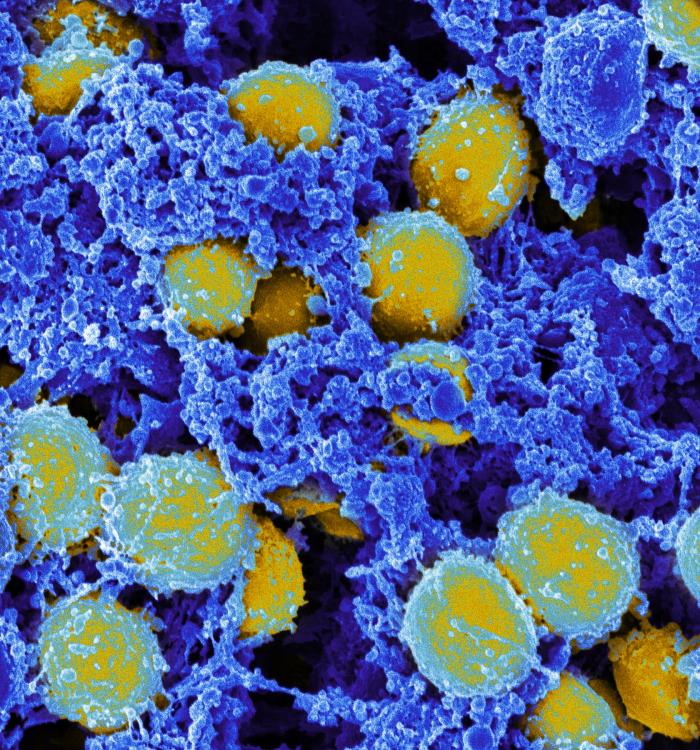Some antibiotics may worsen MRSA
 A new study published in Cell Host & Microbe found that treating MRSA with certain first-line antibiotics can make MRSA infections worse.
A new study published in Cell Host & Microbe found that treating MRSA with certain first-line antibiotics can make MRSA infections worse.
The research team at Cedars-Sinai Medical Center in California found that in laboratory mice, treatment with antibiotics called beta-lactams – which are similar to methicillin – caused the MRSA bacteria to build inflammatory cell walls that damage tissues. Beta-lactam antibiotics kill normal staph by neutralizing their enzymes that make cell walls.
However, the researchers found that one of these enzymes – called PBP2A – is not neutralized by the antibiotics. Furthermore, PBP2A actually enables the superbug to continue building its cell wall.
They also found that the cell wall’s structure is different from normal staph, which allows the superbug to proliferate. Co-senior author David Underhill, PhD, further explains:
“This altered cell wall induces a powerful inflammatory response. In mice infected with MRSA, induction of PBP2A with methicillin led to more inflammation and pathology.”
The researchers say their take-home message from all of this is that, after introducing the antibiotics to the MRSA-infected mice, they became even sicker.
Still, the researchers warn that because their findings are based on studies involving laboratory mice, their results need to be carefully assessed in humans.
Read the full article on Medical News Today.
The journal article can be found in:
Cell Host & Microbe, Volume 18, Issue 5, 11 November 2015, Pages 604-612
Sabrina Müller, Andrea J. Wolf, Iliyan D. Iliev, Bethany L. Berg, David M. Underhill, George Y. Liu
Poorly Cross-Linked Peptidoglycan in MRSA Due to mecA Induction Activates the Inflammasome and Exacerbates Immunopathology
